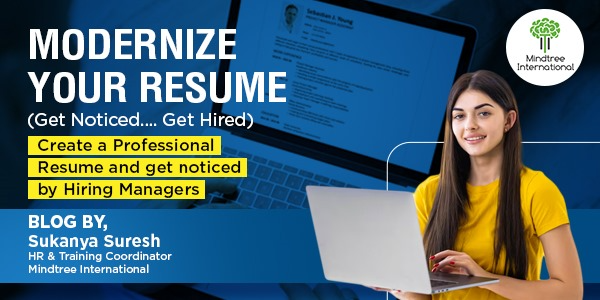
Introduction
In the ever-evolving realm of Talent Management,
organizations continually seek innovative tools to identify and develop the
right talent. One such tool that has gained prominence is Psychometric
Assessments. These assessments play a pivotal role in not only acquiring
top-tier talent but also in nurturing and enhancing the capabilities of
existing teams. In this article, we delve into the multifaceted role of Psychometric
Assessments in Talent Development and Acquisition.
Let’s first understand what Psychometric Assessments are.
They are a set of tools used to measure an individual's cognitive abilities and
behavioral traits. These assessments offer useful insights into an individual's
strengths, weaknesses, preferences, and potential areas for growth. They
include various tests such as aptitude tests, personality assessments, and cognitive
ability evaluations.
Role in Talent Acquisition:
1. Effective Screening Process:
Psychometric Assessments serve as a powerful screening tool
during the hiring process. Organizations can identify candidates whose profiles
align closely with the role's requirements by evaluating cognitive abilities,
personality traits, and behavioral tendencies.
2. Cultural Fit:
The assessments aid in determining the cultural fit of a
candidate within the organization. Understanding an individual's values, work
style and communication preferences ensures a cohesive and collaborative
workplace environment.
3. Reducing Bias:
Psychometric Assessments contribute to a fair and unbiased
hiring process. Unlike traditional interviews, which subjective judgments may
influence, assessments provide objective data, minimizing the impact of
unconscious biases.
Role in Talent Development:
1. Identifying Development Areas:
For existing employees, Psychometric Assessments help pinpoint areas for improvement. By assessing personality traits, emotional intelligence, and leadership skills, organizations can tailor development plans to address specific needs.
2. Succession Planning:
Psychometric Assessments contribute to succession planning by
identifying high-potential employees. By evaluating leadership potential and
strategic thinking, organizations can groom individuals for key roles, ensuring
a smooth transition in leadership.
3. Maximizing Internal Potential:
Psychometric Assessments help unlock and maximize the
potential of existing employees. By identifying talented individuals within the
organization, companies can invest in their development, which is a
cost-effective approach that reduces the need for external recruitment. This
approach also fosters a culture of loyalty, where employees feel valued and
contribute significantly towards a successful organization.
Implementing Psychometric Assessments:
1. Customization:
Organizations should tailor Psychometric Assessments to align
with their industry, culture, and job requirements. This customization ensures
that assessments provide relevant and actionable insights.
2. Professional Guidance:
Engaging professionals in the interpretation of assessment
results is crucial. Trained Psychologists or HR Specialists can provide nuanced
insights and guidance on leveraging assessment data effectively.
3. Feedback and Development Plans:
Communication is key. Providing constructive feedback to candidates or employees based on assessment results fosters transparency and encourages individuals to participate actively in their development.
Navigating Challenges:
Data accuracy and impartiality are crucial in Psychometric Assessment to maintain trustworthiness. Over-dependence on tests neglects practical experience. Achieving fair representation across diverse groups is essential to prevent biases. Culturally sensitive assessments foster an inclusive evaluation process free from discrimination.
Conclusion:
Talent Management is constantly evolving, and Psychometric
Assessments have become an invaluable tool for organizations to acquire and
develop talent. By utilizing the insights provided by these assessments,
companies can make informed decisions, build a positive workplace culture, and
strategically invest in the growth and development of their employees - who are
their most valuable asset. As technology and human resources continue to merge,
Psychometric Assessments will play an increasingly important role in shaping
the workforce of the future.
By,
Fiona Lobo
Head – Learning & Development
Mindtree International - Kuwait

Modernize Your Resume - Get Hired FasterIn today’s fast-paced job market, standing out from the cro...
Mindtree Intl 13 Jun 2024
IntroductionIn the ever-evolving realm of Talent Management, organizations continually seek innovat...
Mindtree Intl 16 Jan 2024
10 SKILLS YOU WILL NEED TO SUCCEED IN THE POST-COVID CORPORATE WORLDThe ongoing Covid-19 Pandemic...
Mindtree Intl 11 Dec 2023
The Digital Culture Catalyst: Social Platforms and ChangeSocial communication platforms possess imm...
Mindtree Intl 11 Dec 2023
The Psychology of Decision-Making in the Digital EraIn today's evolving digital geography, the psy...
Mindtree Intl 11 Dec 2023
The Triad of TransformationThere seems to be a prevalent tendency among many people, to underestima...
Mindtree Intl 11 Dec 2023
EDUCATION IN THE TECH ERATechnology is playing a transformative part in shaping the future of educ...
Mindtree Intl 11 Dec 2023
RECIPE FOR PRODUCTIVITYINGREDIENTS:· 1 cup of Time...
Mindtree Intl 11 Dec 2023